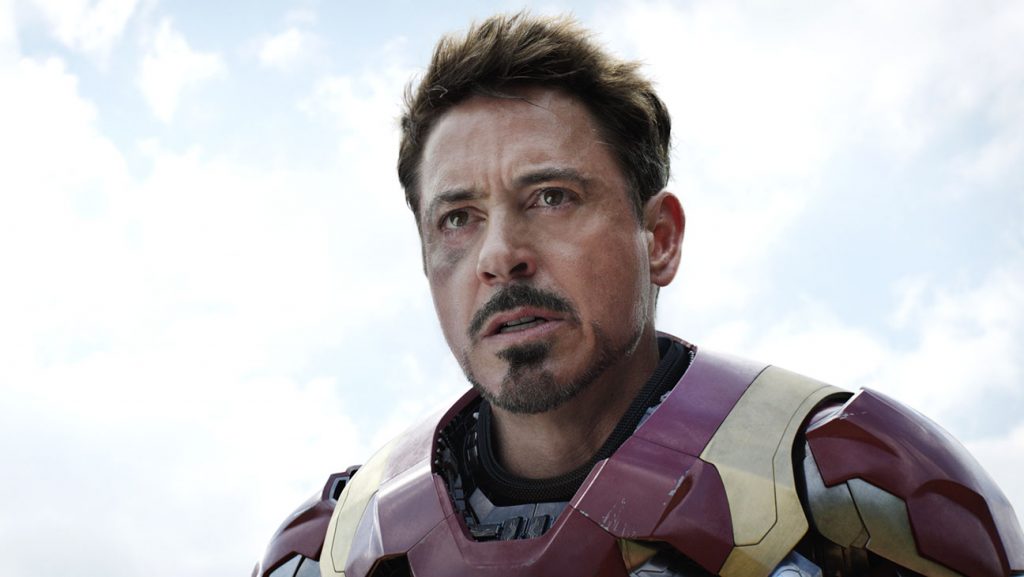t’s no coincidence that when you think about the second Avengers movie, Captain America: Civil War pops up more often in the public consciousness than Avengers: Age of Ultron.
It’s not just that Civil War gets so many things right, it’s also that it’s a well-told story in its own right.
There is a tiredness to Age of Ultron that suggests that Joss Whedon was getting frustrated with trying to capture the same lightning in a bottle. There were lots of buildup to future films, from Thor: Ragnarok to Civil War itself, and while there were many parts that worked, it never came together as more than a sum of it’s parts.
Captain America: Civil War, on the other hand, had a clear narrative that threaded through most of the film’s plot. This was a film about character conflicts, where difficult decisions and differing ideologies drive a wedge between Steve Rogers and Tony Stark. The thing that ignites this conflict, being the Sokovia Accords and then Bucky getting framed as a terrorist, is a lot more polished than the original event in the Civil War comics.

Tony Stark is subtly framed as being in the wrong; even when he is doing the right thing at times, he is doing it for the wrong reasons. He is pro-registration because he’s suffering from guilt, and his recent complications with Pepper Potts has clouded his rational mind.
“He’s extremely vulnerable at that moment,” Joe Russo said during an interview with Slash Film. “He does not understand where his life is going. He gets confronted in the hallway by a woman whose son he de facto murdered because he created Ultron.
We were also not interested at any point in making either character in this conflict the antagonist. We wanted both to be the protagonist and antagonist at different points of the film, and to give you very emotional reasons to support each character.”
Tony Stark tries to overcompensate for his own guilt by backing an effort to police all of the Avengers, and while he manages to smooth talk many of his teammates into coming onboard, Steve Rogers will have none of it. That sets up the crux of the film, as the argument between two friends metastasizes into a full-blown war between two Avenger teams.
That airport battle is a thing of beauty; it’s still impressive three years later, especially the way it allowed almost every character to showcase their smarts and personality in a very comic booky way. Civil War was one of the first times the Russos made it feel like they had brought something straight out of the comic books, and that utter feeling of glee that accompanies that kind of accomplishment is perhaps the best thing about the MCU so far.
What really makes the film what it is, however, is the ending. The battle between Iron man and Bucky and Captain America is perhaps the most personal one to date in the MCU. After learning that Bucky killed his parents (and that Steve knew about it), the reasoning center in Tony’s brain goes off. It’s a battle where no one can win, and as the heroes fight each other, Zemo surrenders to the Black Panther, knowing he had done what he set out to do.
“He goes on the most horrific emotional journey of anybody in the movie,” Joe Russo said, referring to Tony Stark.
“It is very empathetic. It’s very difficult to watch that scene with Bucky and Tony’s parents, but we shot it violent because we want you to be horrified. We wanted you to feel what Tony was feeling in that moment.”
“We knew very early on we wanted to deconstruct the genre,” Joe Russo said, referring to how he and his brother approached the film. “We’re fans, too. The genre is ubiquitous right now, and that three-act structure is becoming tiresome, where the hero has a personal problem in the first act, the villain gets introduced, in the second act the villain comes into conflict, and in the third act he beats the shit out of the villain.
An adage that we always use at Marvel is: people can tell you they fucking love chocolate ice cream, but if you give them chocolate ice cream every day for five days, then by day five they’re going to be like, ‘I hate chocolate ice cream.’
You have to be predictive. You have to be a futurist. You have to look ahead two years because you’re starting these movies two years before they come out, and you have to ask, “Where is storytelling going to go?”
I think it’s interesting that a bunch of us have landed on deconstruction as the next step in storytelling.”
Of course, Civil War isn’t a perfect film. Zemo’s schemes depend on too many things working perfectly. Civil War is very good, but Winter Soldier is still a tad bit better. But Civil War is perhaps more consequential than its predecessor. Because if Steve and Tony hadn’t had that final fight, everyone would be in a very different place by the end of Infinity War.
That makes Civil War perhaps one of the most important films in Phase 3. In essence, it sets the stage for what happened in Infinity War, and thus, Avengers: Endgame as well.